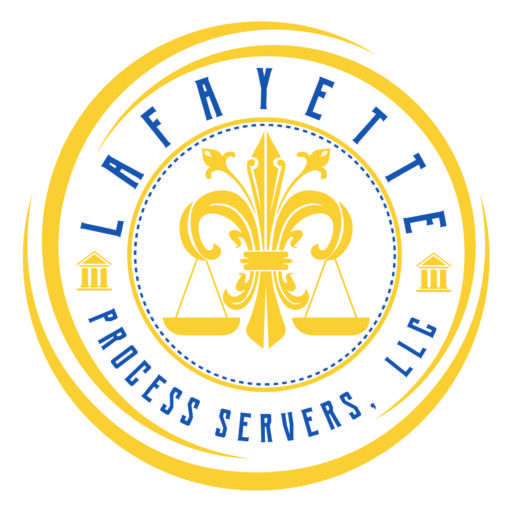Process server jobs play a pivotal role in the intricate web of the legal system. They are the unsung heroes who ensure the wheels of justice keep turning.
Process servers are responsible for delivering legal documents to individuals involved in court cases. This role is crucial in upholding the principle of due process.
However, the importance of process server jobs often goes unnoticed. This article aims to illuminate the significance of these roles within the legal system.
This guide will provide valuable insights whether you’re considering a career in this field or simply curious about the legal process.
Understanding the Role of a Process Server
A process server is a professional who serves or delivers legal documents, such as summons, complaints, subpoenas, and writs. They link the court and the parties involved in a legal dispute.
The role of a process server extends beyond mere delivery. They must ensure that the documents are served in a manner that complies with the specific laws and regulations of the jurisdiction. This includes following the correct procedures for serving different types of documents and respecting the rights of the individuals being served.
Process servers also play a crucial role in verifying and documenting the service of documents. They provide proof of service, a critical piece of evidence the court uses to confirm that due process has been upheld. Without this confirmation, legal proceedings may be delayed or even dismissed.
The Evolution of Process Serving as a Profession
Process serving has a long history, dating back to the early days of the legal system. Initially, this task was performed by local law enforcement officers. However, the need for specialized professionals became apparent as legal systems grew more complex.
Today, process serving is a respected profession with its standards and regulations. It requires a deep understanding of the law, excellent communication skills, and high professionalism. The evolution of this profession underscores the importance of process servers in maintaining the integrity of the legal system.
Requirements for Becoming a Process Server
Becoming a process server requires meeting specific legal requirements. These vary by state but generally include being at least 18 years old and having no felony convictions. Some states also require process servers to be licensed or registered.
In addition to these legal requirements, prospective process servers must complete a training course. This course typically covers the basics of the legal system, the role of a process server, and the proper procedures for serving legal documents.
Here are some common requirements for becoming a process server:
- Being at least 18 years old
- Having no felony convictions
- Completing a training course
- Obtaining a license or registration (in some states)
While these requirements may seem daunting, they ensure that process servers are well-equipped to perform their duties effectively and professionally.
A Day in the Life of a Process Server
A process server’s day is often filled with a variety of tasks. The primary responsibility is to deliver legal documents to individuals involved in a court case. This could include summonses, complaints, subpoenas, and writs.
Process servers may spend a significant portion of their day on the road, traveling to the addresses of the individuals they need to serve. They must also keep detailed records of their attempts to serve documents, including each effort’s date, time, and location.
Despite the challenges, many process servers find their work rewarding. They play a crucial role in the legal system, ensuring that individuals are appropriately notified of legal actions against them. This helps to uphold the principle of due process, making process server jobs essential to the functioning of our justice system.
The Skills and Attributes of a Successful Process Server
A successful process server needs a unique set of skills and attributes. They must be detail-oriented, ensuring that legal documents are served correctly and legally. This includes accurately recording the details of each service attempt and maintaining these records for potential use in court.
In addition, process servers must be persistent and adaptable. They often have to deal with individuals who are challenging to locate or may not want to be served. This requires creativity in finding ways to serve documents and resilience in the face of potential confrontation or rejection.
The Legal Significance of Process Servers
Process servers play a crucial role in the legal system. They are responsible for serving legal documents to individuals involved in a court case, ensuring that everyone is aware of the legal proceedings and can respond. This is a fundamental aspect of due process, a constitutional right that guarantees fair treatment through the normal judicial system.
Moreover, process servers also contribute to the efficiency of the legal system. Ensuring that documents are served promptly and correctly helps prevent unnecessary delays and complications in legal proceedings.
The Challenges and Risks of Process Serving
Process serving is not without its challenges. Servers often have to deal with uncooperative or hard-to-find individuals, making the job difficult and time-consuming. They may also encounter hostile situations, requiring them always to maintain composure and professionalism.
In addition, process servers must always ensure that they are serving documents by the law. Any mistakes or violations can have serious consequences, including dismissing a case or legal action against the server. Therefore, a thorough understanding of the law and meticulous attention to detail are essential in this work.
Technology’s Impact on the Process-Serving Industry
Technology has significantly impacted the process serving industry. From digital databases and GPS tracking to mobile apps for document management, technology has made it easier for process servers to locate individuals, serve documents efficiently, and maintain accurate records. However, servers must stay updated with the latest tools and legal regulations surrounding their use.
Career Paths: From Process Server to Legal Assistant
Process serving can be a stepping stone to other legal careers. Many process servers use their experience to transition into roles such as legal assistants, paralegals, or even private investigators. These roles offer more stability and often come with higher pay.
However, the transition requires additional education and training. For instance, becoming a legal assistant typically requires a certificate or associate’s degree in legal studies. Regardless, the skills and experience gained from process server jobs can provide a solid foundation for these advanced roles.

